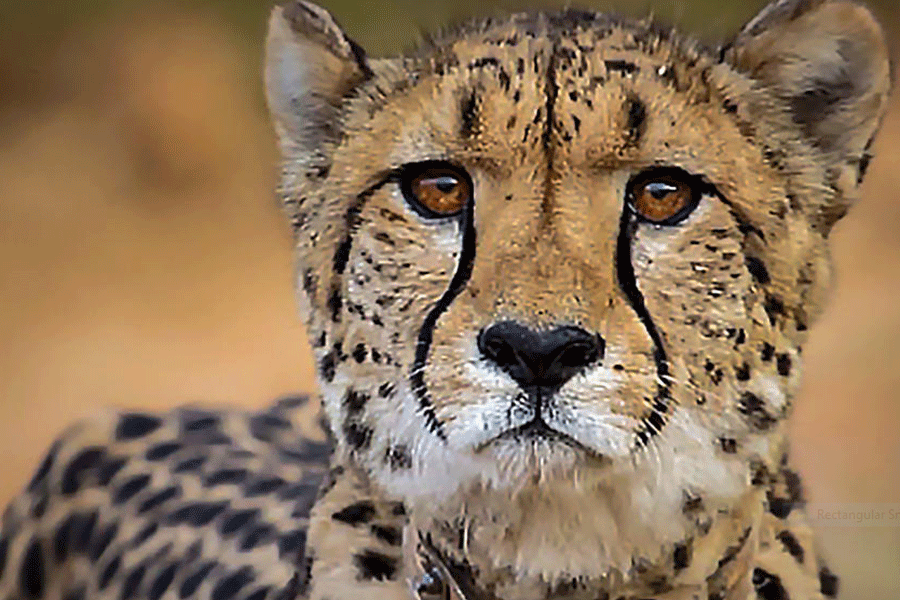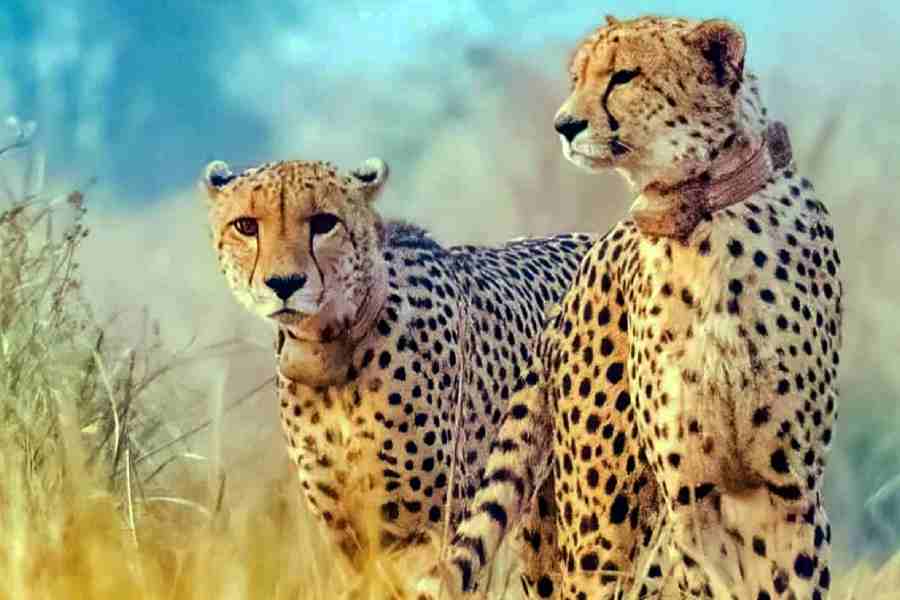Wildlife staff on Sunday captured a female South African cheetah in the Kuno National Park for a health check-up after a 22-day search that involved forest staff, officers, veterinarians, elephants, a dog squad and drone teams.
The cheetah named Nirva is “healthy” and has been kept in a fenced enclosure for further checks, the Madhya Pradesh chief wildlife warden’s office said, announcing the end of the search necessitated by the failure of a satellite-linked locator on its collar.
Wildlife authorities had decided last month to bring the free-ranging cheetahs in Kuno back into the fenced enclosures after veterinarians had attributed three cheetah deaths to infections resulting from fly larvae infestations along skin inflammation near their collars.
India’s cheetah introduction project that seeks to establish clusters of wild cheetahs in unfenced wildlife sanctuaries has since March lost nine cheetahs — six of 20 adults brought from Namibia or South Africa and three of four cubs born in Kuno earlier this year.
All 15 cheetahs — seven males, seven females and one female cub — are now in fenced enclosures called bomas and are continuously monitored on health parameters by Kuno’s veterinary team, the wildlife warden’s office said.
Nirva’s satellite-linked locator stopped functioning on July 21, prompting forest officers to begin the search, deploying over 100 field staff, veterinarians, and cheetah trackers who searched day and night daily relying on assistance from a dog squad, elephants, and two drone teams.
The teams that covered 15-20 sq km daily also requested residents of neighbouring villages to alert authorities if they spotted Nirva. On Saturday, the satellite-linked device abruptly began to transmit her location.
A veterinary team rushed to the spot and saw her but could not capture her. The drone teams were tasked with keeping track of Nirva’s location through the night and the veterinary team guided by the drones returned to her location and captured her at about 10am, the chief wildlife warden’s office said.
The search was an exclusively “Indian” operation with no experts from either Namibia or South Africa on the ground in Kuno. “This is a great achievement for the field staff who are not getting credit for all the things they do correctly every day,” said an international conservation official.
“Only mistakes have been highlighted,” the official told The Telegraph. “This is a new species for every Indian working on the project ... they’ll need to learn the specifics of managing cheetahs. Finding Nirva marks a success on the cheetah learning curve.”
The cheetah deaths in Kuno — especially the deaths of the three cubs that died of heat, dehydration and poor nutrition — had amplified the controversy over what critics have called a “vanity project” that India had rushed into without adequate preparation.
But even wildlife biologists who have criticised the Union environment ministry for rushing into the project disregarding cheetah’s true requirements for space have asserted that the deaths did not signal either a failure or success of the project.
The project had flown in eight cheetahs from Namibia in September last year and 12 from South Africa in February this year. Project officials have said the deaths, while unfortunate, were not setbacks, citing the project document that lists a 50 per cent cheetah mortality over the first year of introduction among criteria for short-term success.











